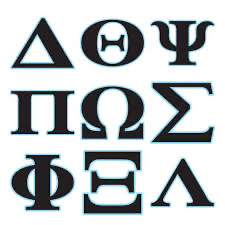 Of all the areas of expertise that Evidence Solutions specializes in, the expert that incites the most questions would have to be our Greek Fraternity Expert, George Jenson.
Of all the areas of expertise that Evidence Solutions specializes in, the expert that incites the most questions would have to be our Greek Fraternity Expert, George Jenson.
What does a Greek Fraternity Expert do? What do their cases look like?
Nearly all legal cases involving Greek Fraternities comprise liability for injuries or deaths sustained during chapter-sanctioned activities - whether they are hazing rituals for new members or parties at the fraternity house (or moments where those two coincide). There are no reliable statistics on injuries, but there have been hundreds of hazing-related deaths since the 1800s. Causes vary, but by and large the most common is alcohol poisoning. There have already been two deaths among fraternity pledges from alcohol poisoning this year (2021) alone.
Similarly, alcohol poisoning may also arise from Fraternity Parties attended by members and non-members alike. Additional concerns surround the heavy drinking that occurs at these parties - when heavily intoxicated a person is far more likely to injure themselves. There have been many reported instances of someone falling down stairs, off structures, impacting a rock or hard object, and suffering a fatal injury.
Cases involving Greek Fraternities may attempt to pin liability on several tiers of individuals and organizations. The fraternity itself is multilayered and includes varying levels of control. There are undergraduate members that make up individual undergraduate chapters that exist on different college or university campuses and their alumni. These undergraduate chapters are usually self-governed by its undergraduate members with alumni members playing supervisory roles. The national/international fraternity is made up primarily of those chapters and is responsible for setting standards and regulations. The national/international organization has the power to suspend the charter of individual chapters, common after high-profile incidents but less commonly seen as a pre-emptive deterrent. Although it is more difficult to argue their liability, another player in these legal cases can also be the host institution or school. In most cases, liability will only arise where there has been a history of offenses that the host institution was aware of and chose not to address, or where the event in question was planned or sanctioned by the school.
There have been several high-profile cases that have led to litigation in recent memory. Tim Piazza was a 19-year-old Pledge that fell down the stairs while extremely intoxicated with an estimated Blood Alcohol Concentration (BAC) of .4. The paramedics were not called by any of his fraternity brothers until 12 hours after the fall. After an investigation, 18 members were charged - 8 of them with involuntary manslaughter for their negligence. Other charges included reckless endangerment, hazing, and furnishing alcohol to a minor. The Parents went on to sue 28 members, Penn State (which included barring that particular fraternity from operating on campus), the Beta Theta Pi's National Organization, and the company that provided security monitors at Greek Life social events.
Tucker Hipps was a Sigma Phi Epsilon pledge who fell from a bridge while out on a group run with his fraternity. He suffered fatal head injuries from the fall. The police could not prove a direct hazing relation, but many speculated that there was a link - Hipps' parents allege that he was forced to walk the narrow railing of the bridge before slipping and falling. They went on to file a lawsuit against three fraternity members, Clemson University, and the Sigma Phi Epsilon National Organization.
A Delta Sigma Phi pledge, Robert Tipton, was found unresponsive and later died of an Oxymorphone overdose. The family alleged that he had been hazed in a fraternity "counseling session," suffering blunt force trauma to the head. They filed a suit against members of the fraternity, the National Organization, as well as the school. The suit claimed that the school had been aware of the fraternity's misconduct and covered up the frequency of transgressions and risk involved.
Cases like these venture deep into the world of Greek Fraternity life. Due to the complex structure, tiers of responsibility, and many parties involved, a Greek Fraternity Expert may be brought on to clarify liability and expectations among the various factions. Often the best assistance an Expert can provide is less to do with evidence and testimony, and more about the "lay of the land" within a fraternity. Do you have a case involving Greek Fraternity liability? Contact us today for a consultation on how we can contribute to your case. Given the somewhat unique assistance that an Expert can provide, the earlier in the case the better. Having another perspective regarding what avenues to pursue and "what rocks to turn over" is almost certainly of significant value.
